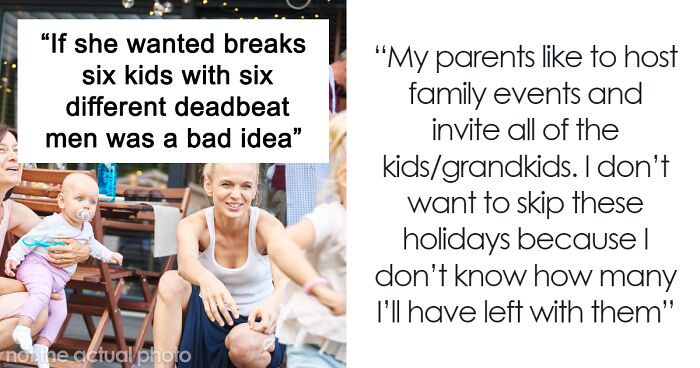
Childfree Woman Gets Called Out For Not Babysitting At Family Events, Gives Them A Reality Check
More and more people in the U.S. choose not to have children. 57% of adults under 50 who say they don’t plan to have children claim it’s because they simply don’t want to. Still, being a child-free adult comes with lots of pressures, especially for women.
This lady, for example, had her siblings go off on her because she wouldn’t help them look after their kids, change diapers, and otherwise clean them up. She told them a resounding ‘no,’ but with only her husband and her father on her side, she started wondering: maybe she was being a jerk.
Family gatherings often mean kids, lots of kids
Image credits: Image-Source (not the actual photo)
This woman got the wrath of her siblings during a family gathering when she refused to help take care of their children
Image credits: RossHelen (not the actual photo)
Image source: Final-Resolution-423
People who are child-free by choice don’t want to babysit others’ kids
Image credits: Huy Tran (not the actual photo)
Parents often take advantage of their childless friends and family members by guilting them to take care of their kids. Many think that because they don’t have children, they have all the time in the world to help them out.
While it’s understandable from a human standpoint – giving help to those who need it – it’s not actually so simple. It’s not because child-free people don’t like kids. Many enjoy their company and would gladly hang out with children.
“I’m child-free by choice, so no, I don’t want to look after your kids,” columnist Jana Hocking writes for News.com.au. “Something happens once they start having kids. We singletons become less friends, and more servants to you and your children.”
People often make women feel like there’s something wrong with them if they don’t want children or don’t enjoy spending time with someone else’s kids. Lucy Rimalower, M.A., M.F.T., explains that many women struggle with these prejudices.
“Among my clients, the demographic that experiences the most pressure and anxiety around making the child-free decision is cis straight women,” she told in an interview for KCRW. “They’ve been hearing their whole lives that being a mother is a moral imperative. It is a requirement to be a complete woman.”
As sexist stereotypes prevail, childcare is still considered to be a woman’s job
Image credits: cottonbro studio (not the actual photo)
The year is 2024, and still, somehow childcare and even babysitting are still viewed as a woman’s job. Research shows that only 2.9% of babysitters are male. If that’s the statistic for professionals, what can women expect when they’re at family gatherings?
Experts say that the stereotype that women are innate carers is still prevalent in our culture. And it doesn’t pertain to only babies and children; we expect women to take care of the elderly, their disabled family members, etc. Research shows that 81% of all caregivers are in fact, women.
Women are also socialized to be carers from an early age. One interesting study looked at teenagers, both male and female, who worked babysitting jobs. The researchers concluded that families don’t consider girls employees and ask them to do more tasks without payment than boys.
Parents would ask the girl babysitters to do housework, cooking, and chaffeuring, but wouldn’t compensate them for it. They would also ask them to stay late after work to discuss the children’s day – all things they didn’t ask of boys.
What’s more, when the boys asked for a raise, families viewed them as more competent. When girls did the same, parents saw them as less likable and manipulative.
Miriam Forman-Brunell writes in her book “Babysitter: An American History” that babysitting developed as a method of socialization. Teenage girls got some autonomy through “a job” while maintaining traditional gender roles.
One might think: why did the OP’s husband not get demands to change diapers and look after the kids at the family get-together? They only expect their sister to do it because she doesn’t have any of her own and, because she’s a woman, magically knows how to do it better.
People in the comments agreed that parents should be taking care of their kids and not expect others to do so
Poll Question
Thanks! Check out the results:
Explore more of these tags
I attended family events with my three kids when they were little and I never once asked for help with any of them. I wouldn't even think to ask someone to change a diaper. I was never mad that no one helped because I never expected it. It's weird that they expect it. When my brother visited when my second nephew was a baby--I helped out a lot. I'd swoop into their room every morning and take the baby so they could sleep in. They never asked. I just wanted the time with my nephew. If you want to help, then do it. If you don't, then don't. There is absolutely zero obligation. OPs family dynamic sounds weird.
I don’t have kids but my brother and his wife have two boys (oldest is 6 now and the younger one is 3). I was NEVER asked to change diapers or feed them, because my brother and his wife are sane and have no sense of entitlement. When I spent/spend time with the boys, it’s my choice (echoing what you said). I do not understand this woman’s family either.
Load More Replies...NTA. If you were in a family with different dynamics, like, where they would in their turn actually have helped you move and with the fence and so on - I could imagine you might be helping them out too a little here and there. Yet, this is a whole different situation. You do you, when you feel like helping, you do, and otherwise, you don't.
It first, I thought she might be a jerk, but I see her reasons for refusing to help with the kids: the dynamics (one-sided demands and expectations), the sexism (not asking men to help), and her dislike of those children (if not all children).
Load More Replies...I attended family events with my three kids when they were little and I never once asked for help with any of them. I wouldn't even think to ask someone to change a diaper. I was never mad that no one helped because I never expected it. It's weird that they expect it. When my brother visited when my second nephew was a baby--I helped out a lot. I'd swoop into their room every morning and take the baby so they could sleep in. They never asked. I just wanted the time with my nephew. If you want to help, then do it. If you don't, then don't. There is absolutely zero obligation. OPs family dynamic sounds weird.
I don’t have kids but my brother and his wife have two boys (oldest is 6 now and the younger one is 3). I was NEVER asked to change diapers or feed them, because my brother and his wife are sane and have no sense of entitlement. When I spent/spend time with the boys, it’s my choice (echoing what you said). I do not understand this woman’s family either.
Load More Replies...NTA. If you were in a family with different dynamics, like, where they would in their turn actually have helped you move and with the fence and so on - I could imagine you might be helping them out too a little here and there. Yet, this is a whole different situation. You do you, when you feel like helping, you do, and otherwise, you don't.
It first, I thought she might be a jerk, but I see her reasons for refusing to help with the kids: the dynamics (one-sided demands and expectations), the sexism (not asking men to help), and her dislike of those children (if not all children).
Load More Replies...
 Dark Mode
Dark Mode 

 No fees, cancel anytime
No fees, cancel anytime 






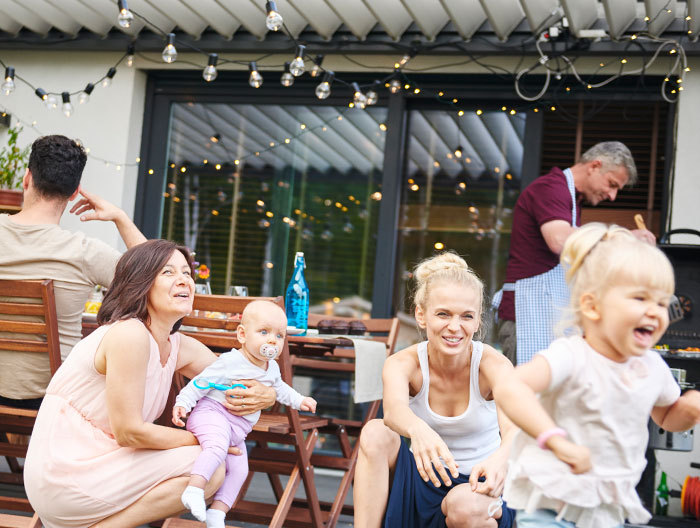
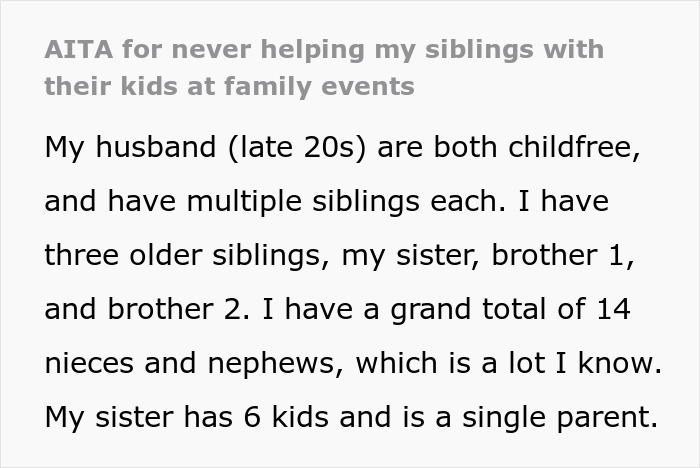
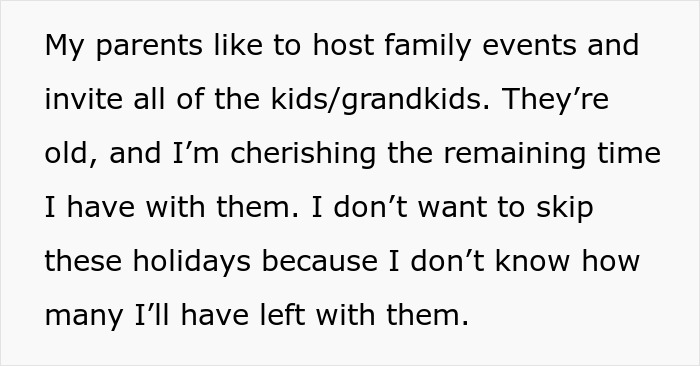
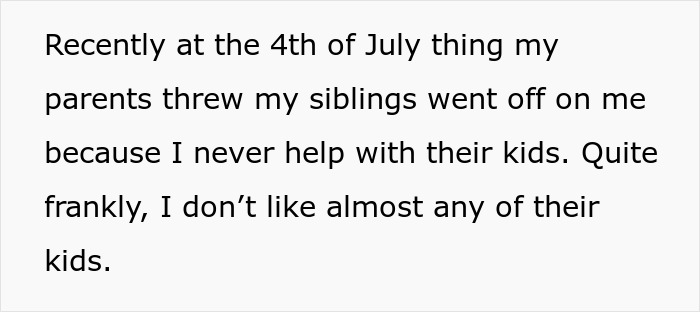
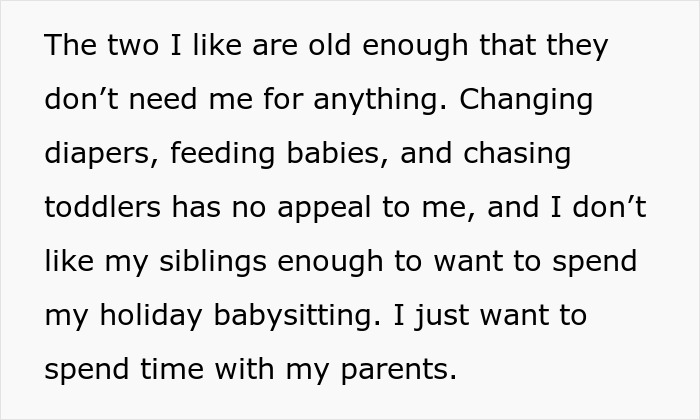
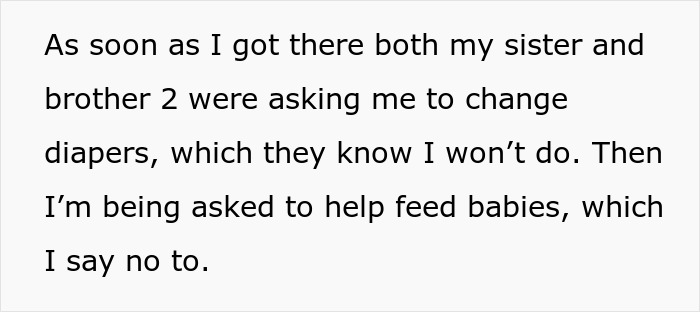

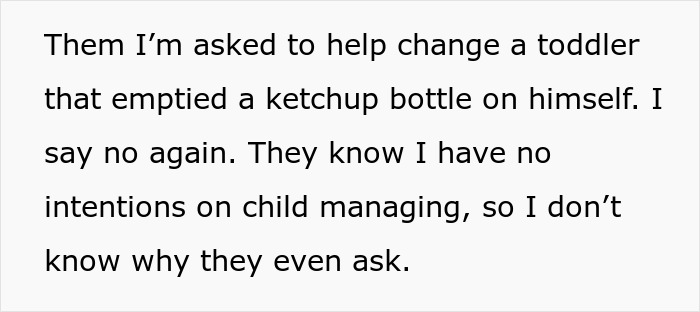
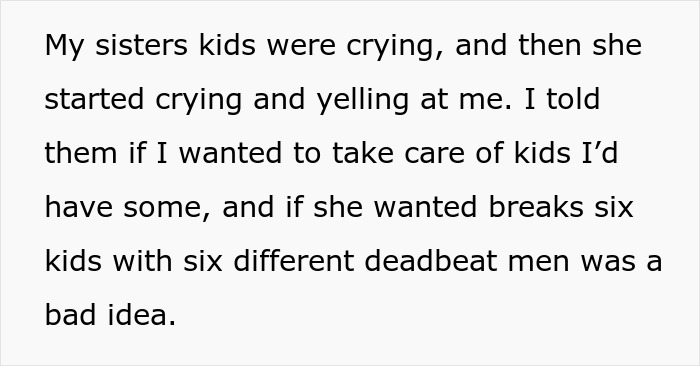
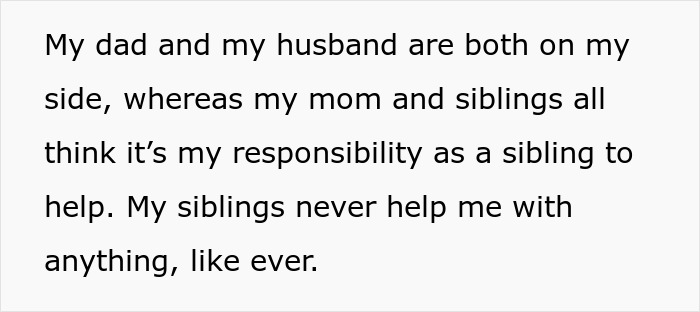
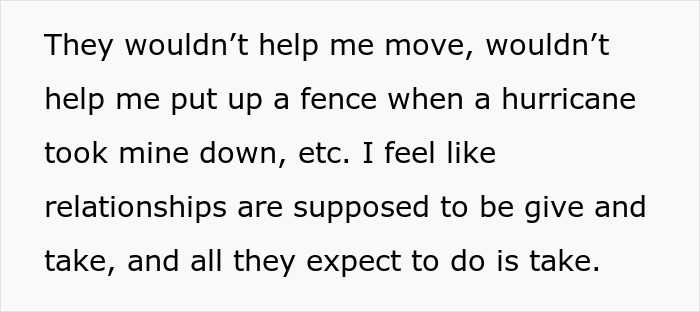

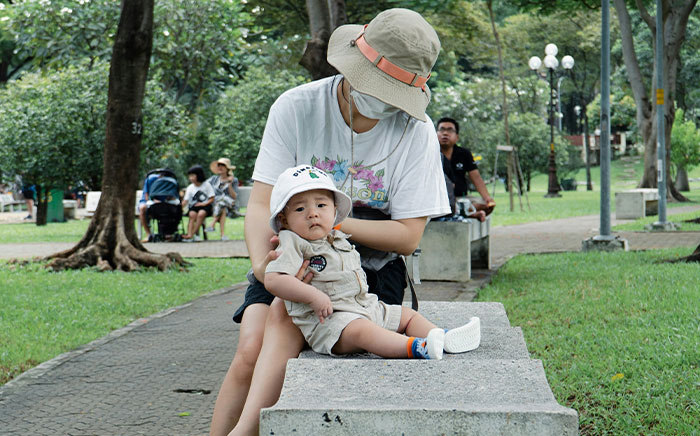
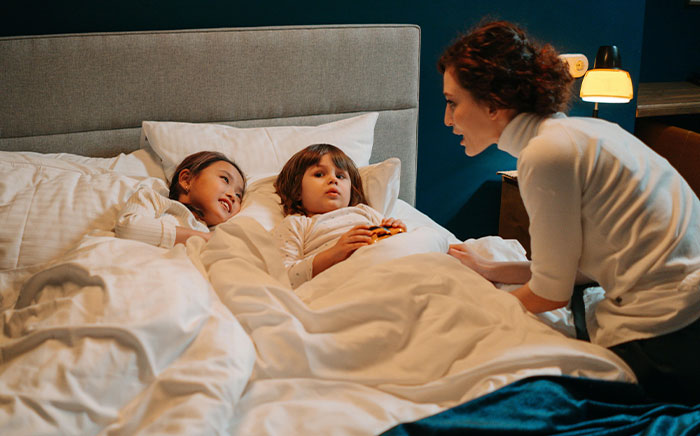


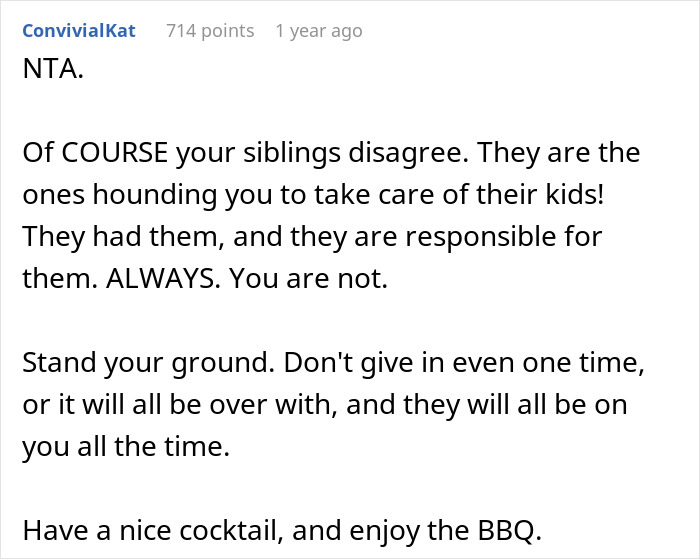



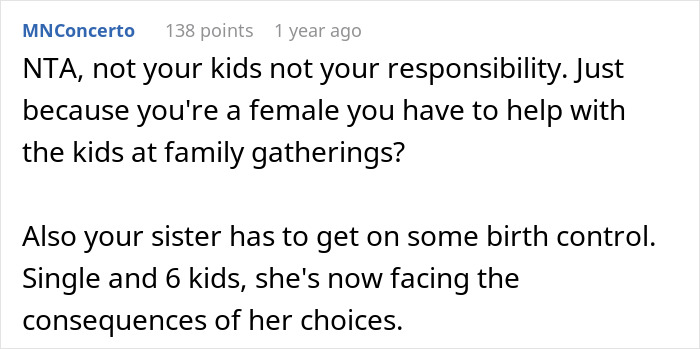

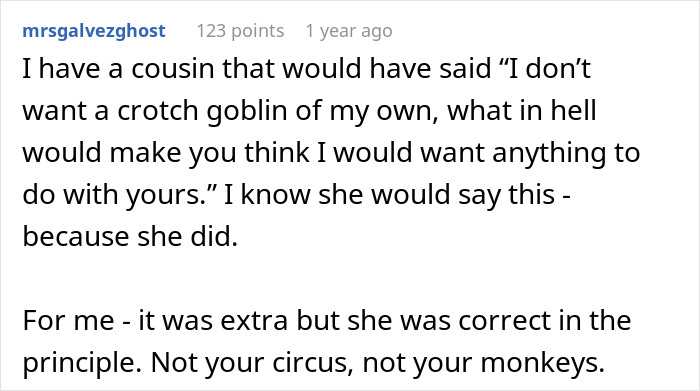


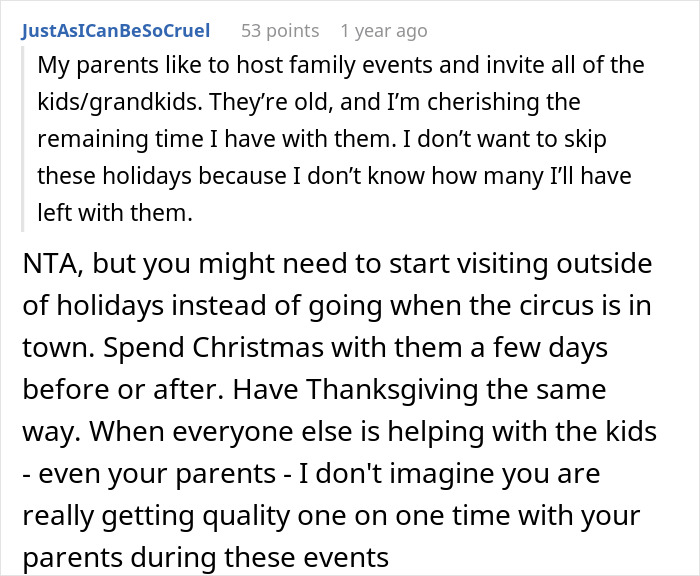
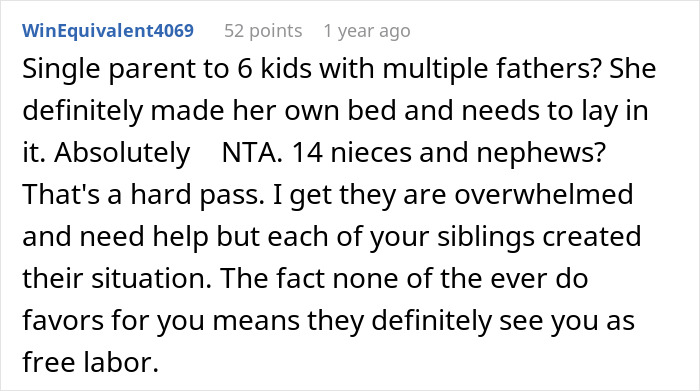

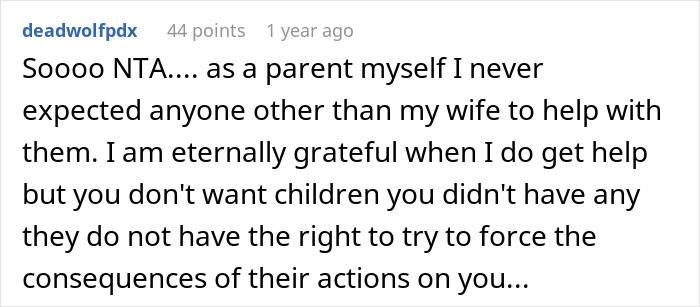


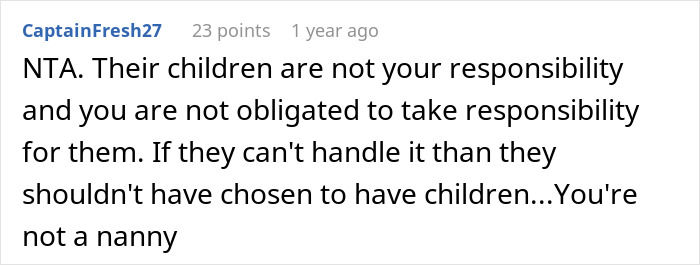


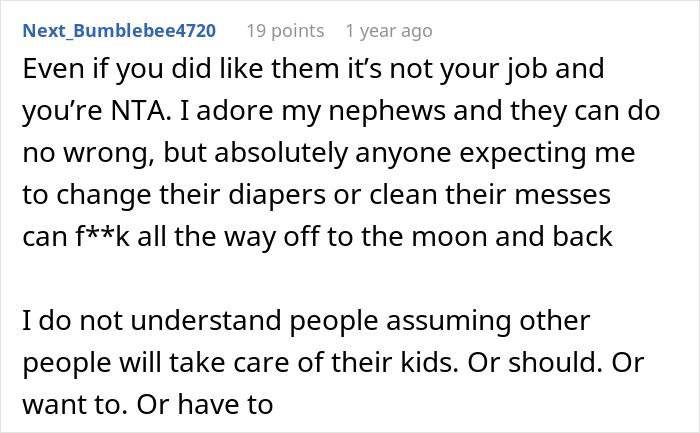

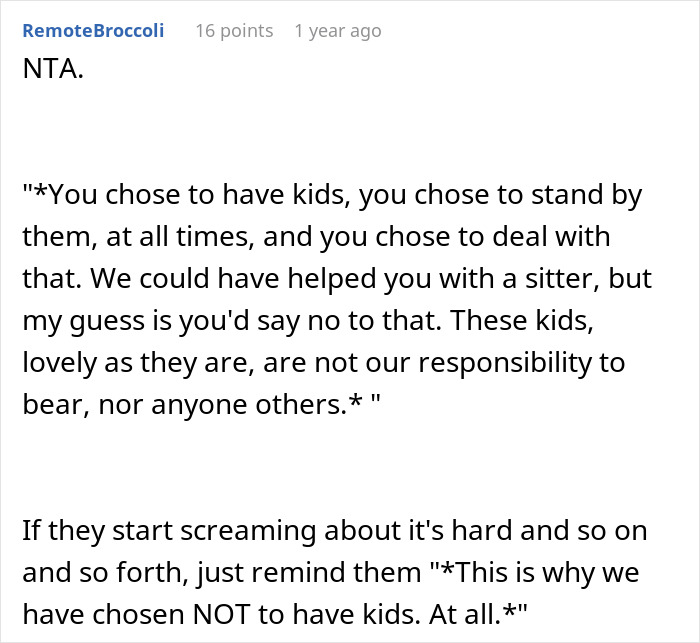










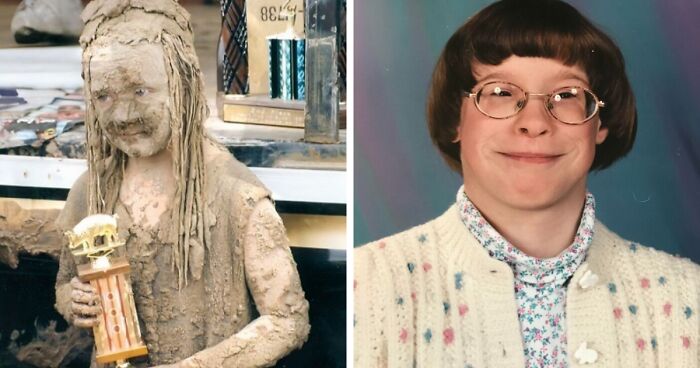

































46
39